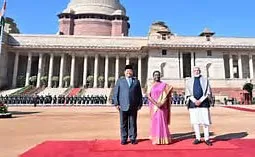Israeli Supreme Court President Esther Hayut stepped down from her position on Monday, creating uncertainty about her successor. “As fate would have it, on the day of my retirement from the judiciary, we are in one of the most difficult periods in the country’s history. We are burying our dead and covering our wounds, and praying for the return of all the abducted and missing to their families soon,” Hayut wrote in a farewell letter.
“At this time, it is better to concentrate on doing, with assistance, strengthening, and support. This is the secret of the strength and power of Israeli society, which is revealed in all its glory in the painful and unbearably difficult days that we all experience,” she added.
Hayut has retired as she has reached the maximum age of 70 for Israeli judges. Justice Uzi Fogelman will serve as the interim Court President until a permanent appointment is made. Prior to the Gaza war, the governing coalition was pursuing a controversial judicial reform initiative, which included modifications to the process of appointing and removing judges. A political standoff involving Justice Minister Yariv Levin, the architect of the reform, led to the Judicial Selection Committee not convening. This resulted in a shortage of judges nationwide and a growing backlog of cases.
The nine-member Judicial Selection panel is responsible for appointing judges across all levels of Israel’s civil court system. During the period of emergency wartime government, the judicial reform initiative has been suspended. No legislative matters unrelated to the war will be pursued, and senior appointments will be automatically extended. The 15-member Supreme Court is already missing one judge due to the retirement of Justice Anat Baron, who turned 70 on Thursday. Traditionally, the position of Court President is given to the longest-serving justice, who would be Justice Isaac Amit.
However, Justice Yosef Elron has requested consideration for the role in a departure from tradition. Elron is perceived as a more conservative judge compared to Amit. Even though Hayut and Baron have retired from the judiciary, they will have several months to complete rulings on the final hearings they were involved in, including appeals related to various aspects of the judicial reform initiative. Supporters of the legal reform aimed to curtail what they saw as excessive judicial authority, while opponents characterised the proposals as undermining democracy.























